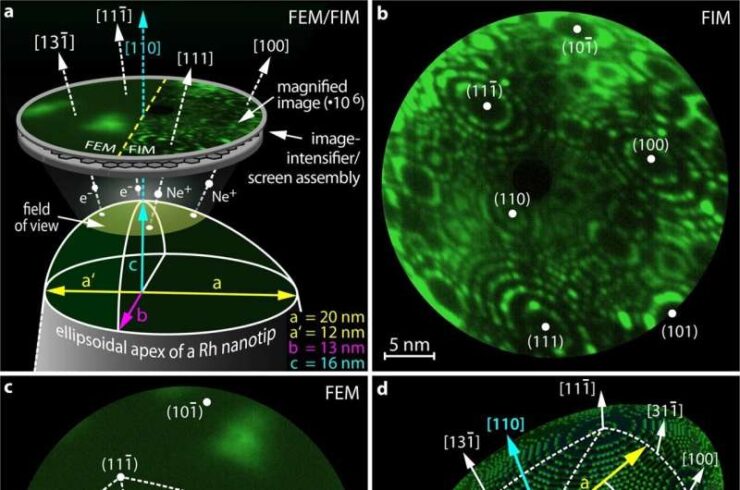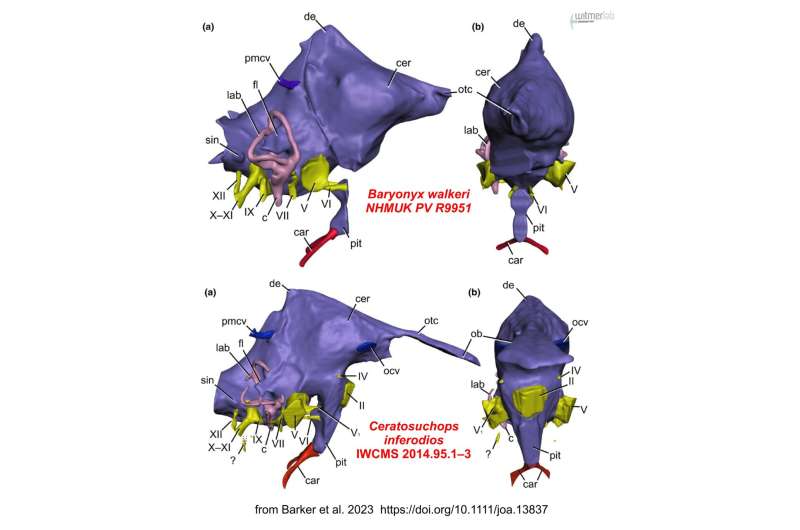FUTURES – Social Monsters and their Makers: Reimagining social media to nudge our better angels
by Sally Chase
纳西莎打出一行字 “祝我永远的榜样母亲节快乐”,她翻遍了她的相册,就为挑选出过去一年中她和她妈妈最吸引人的照片。她发布了照片,然后焦急地监视着点赞和评论,她还发布了几张她自己的照片,以增加人气。宗教和爱国节日、朋友的婚礼和其他明显与纳西莎无关的事件也是如此。家庭度假的每一个时刻都被仔细审视,看是否可以在Instagram上发布;每一个经过的原因和灾难都被检查,看是否有可能增加纳西莎的社会资本。她早就忘了要为这些模式感到羞耻,但她脑海中的一些小声音仍在低声说:”这真恶心。”
Narcissa tapped out a “happy Mother’s Day to my forever role model,” having already poured through her albums to pick out the most attractive photo of herself with her mom from the past year. She posted, then anxiously monitored the likes and comments, handing out a few of her own to prime the pump. So it went for religious and patriotic holidays, friends’ weddings, and other events decidedly not about Narcissa. Each moment of a family vacation was scrutinized for Instagrammability; every passing cause and calamity was examined through the lens of its potential to augment Narcissa’s social capital. She’d long ago forgotten to be actively ashamed of these patterns, but some small voice in the back of her mind still whispered, “This is gross.”
普遍的共识是,社交媒体使他们变成了更糟糕的人,这些人被嫉妒和虚荣的自我循环所吞噬,以及对外部证明的无底线渴求。对他们来说,最重要的是别人如何看待他们的身体、他们的物质成就、他们的关系和他们的聪明才智,这一点从他们的业余时间和思想中可以看出。
The general consensus was that social media had made them worse people, consumed by the self-perpetuating cycle of jealousy and vanity, and a bottomless thirst for external validation. What mattered most to them, as demonstrated by what dominated their spare time and preoccupied their thoughts, was what others thought of their bodies, their material success, their relationships, their cleverness.
社交媒体助长了对他人的残忍和不容忍,以及内心的不诚实和懦弱,更不用说骄傲、懒惰和放纵。点赞永远是不够的,因为他们为了剥削他们的朋友、他们的家人和他们自己而不断降低底线。对于一个女人,一个孩子,或者任何人,社交媒体都是一个可怕的地方,真的。 但似乎没有出路。
Social media fostered cruelty and intolerance towards others, and dishonesty and cowardice within, not to mention pride, sloth, and intemperance. The likes were never enough, as they stooped to new lows to exploit their friends, their families, and themselves. Social media was a terrible place to be a woman, a child—or anyone, really. But there seemed to be no way out.
直到Loveta Readlots博士发现了一篇能将社交网络变成美德学校的亚里士多德古文。哲学家、技术专家、社会科学家和政策制定者仔细研究了这本巨著,为目前的情况提炼出了一些经验。不久之后,一个新的社会网络从这片肥沃的土地上诞生了:Arete。
Until, that was, Dr. Loveta Readlots unearthed an ancient Aristotelian text on turning social networks into schools of virtue. Philosophers, technologists, social scientists, and policymakers scrutinized the tome, distilling lessons for the present context. Before long, a new social network emerged from the fertile ground: Arete.
Arete有严格的时间限制。它每周只可以使用一次,而且只能在傍晚时分使用。这减少了从早到晚不间断使用该软件,以及在其上挥霍所有的闲暇的诱惑。该功能以三种互动模式为中心:提问、赞美和挑战。用户可以使用Arete来寻求答案或建议,提升他人,或者锻炼技能或习惯。
Arete had strict time limits. It could be used once weekly, and only in the early evening hours. This tempered the temptation to rise and set with the app, and to squander on it all one’s leisure. The functionality centered around three modes of interaction: questions, compliments, and challenges. Subscribers could use Arete to seek answers or advice, to lift others up, or to work on a skill or habit.
像所有美好的事物一样,Arete也不能避免熵增和腐化。挑战成为最新的美德信号模式,赞美变成了提议和奉承。许多问题是懒惰的,在其他地方回答似乎更好。Arete还没有解决自我至上的问题,也没有解决自我推销的诱惑。用户和评论家对什么是有价值的挑战和高质量的评论争论不休–以及谁来决定这些。对许多人来说,推特和大晚上刷抖音的诱惑被证明完全无法抗拒。
Like all good things, Arete was not immune to entropy and decay. Challenges became the latest mode of virtue signaling, and compliments deteriorated into propositions and flattery. Many questions were lazy, and better answered elsewhere. Arete hadn’t resolved the gross primacy of the self, the siren call of self-promotion. Users and critics bickered about what constituted worthwhile challenges and quality comments—and who got to decide. For many, the lure of Twitter and TikTok night-scrolling proved too much to resist.
然而,在家庭和公民关系以及公共政策方面,为建立更加良性的社交网络所做的努力本身也取得了一些成果。主要平台认真对待禁止18岁以下儿童的问题。记者和国会议员停止了对最低限度的潜伏鱼的拖网式搜索。隐约感觉到,这种文化更有尊严和礼貌。
And yet, the effort itself towards more virtuous social networking bore some fruit in familial and civic relations and public policies. Major platforms got serious about banning kids under the age of 18. Journalists and members of Congress stopped trawling for the lowest lurking fish. The culture felt, vaguely, more dignified and polite.
本时代的剪影
Snapshot of today
一些研究表明,使用社交媒体与抑郁、嫉妒、不满、焦虑、孤独、丑陋、低自尊,以及自恋、虚荣、饮食失调、人际关系问题、不良的学习习惯、不合格的学习成绩和婚姻不和谐等感受的增加有关。(其他研究则显示了一些积极的影响。)并非所有这些倾向和行为都与性格形成和有道德的生活直接相关,但它们值得考虑,因为它们至少是充分生活的潜在障碍。
Severalstudies have linked social media use to increased feelings ofdepression,envy,dissatisfaction,anxiety,loneliness,ugliness, andlow self-esteem, as wellasnarcissism,vanity,eating disorders,relationshipissues, poorstudy habits, subparacademic performance, andmarital discord. (Other research reveals some positive effects.) Not all of these dispositions and behaviors are directly relevant to character formation and virtuous living, but they are worth taking into account as at minimum potential obstacles to a life fully lived.
在她的论文《社交媒体与道德:社交媒体是否会成为个人最终幸福的障碍?》学者艾玛·罗森最后总结出来的答案是 “会”。社交媒体会损害用户的身体和情感健康,以及建立真正友谊的能力,尽管个人的里程可能有所不同,且主要取决于道德的行使。
In her thesis “Social Media and the Virtues: Could social media be an obstacle to an individual’s ultimate happiness?” scholar Emma Rosénconcludes that the answer is ‘yes.’ Social media can harm users’ physical and emotional health, and capacity for true friendship, though individual mileage may vary, largely depending on the exercise of virtue.
神经科学家苏珊·格林菲尔德更进一步,认为由于社交媒体的存在,”21世纪中期的心智几乎完全幼稚化,其特点是注意力短暂、哗众取宠主义、无法共情及身份感不稳定”。社交媒体会破坏我们以自信与关心来进行人际交往的能力,并可能使我们过于依赖他人的回应和保证,同时也削弱了我们对长期后果和以他人为导向的目标的关注。
Neuroscientist Susan Greenfieldgoes a step further, arguing that thanks to social media, “the mid-21st century mind might almost be infantilized, characterized by short attention spans, sensationalism, inability to empathize and a shaky sense of identity.” Social media can corrupt our capacity to manage in-person interactions with confidence and care, and may make us too reliant on others’ responses and reassurances, while also diminishing our attention to long-term consequences and other-oriented goals.
同样,哲学家米切尔·哈尼在他的文章《Meme时代的理智社区》中提出担忧,社交媒体这样的结构使人们减少了理性语言。特别是Meme的流行和力量,哈尼认为不利于增加深思熟虑后善意的辩论,因为这以比特计的,从中甚至能看出这人性格的观点激增,并在影响公众舆论的同时排除了一切参与或批评。
Similarly, philosopher Mitchell Haney worries in his essay “The Community of Sanity in the Age of the Meme” that social media is structured such that it degrades rational discourse. The prevalence and power of memes, in particular, Haney sees as detrimental to thoughtful and charitable debate, as bite-sized viewpoints, often imbued with character ascriptions, proliferate and influence public opinion while precluding engagement or critique.
神学家伊恩·保罗将 “网络自我 “描述为 “超级表演”,其特点是充满强迫性和欺骗性的自我表现,但却忽略了我们的大部分人性,不像在真实社区中,当人们有着条条框框限制的时候。 由于缺乏真正的社区和真正的孤独,我们越来越认同别人对我们所代表的自我的看法,并逐渐适应被包装被销售。保罗担心社交媒体的梯度是久坐不动、社会原子化、安全感丧失、被动心理、无节制、成为一群乌合之众。他说,社交媒体正在 “构造和形成我们”,”往往是以令人不安的方式”,导致更多的分心和不友善,以及不真实的发生。道德的形成依赖于良好的环境,而这”弱 “和 “无序 “的虚拟替代品——通常被过滤为熟悉或没有挑战性的特征——变得拙劣而糟糕。
Theologian Ian Pauldepicts the “online self” as “hyper-performative,” marked by obsessive and deceptive self-presentation that nonetheless elides much of our humanity, absent the normal guardrails found in physical community. Lacking both real community and real solitude, we increasingly identify with others’ perceptions of our represented selves, and grow comfortable with being packaged and sold. Paul fears that the gradient of social media is towards sedentariness, social atomization, insecurity, reactivity, intemperance, and groupthink. Social media is “structuring and forming us,” he says, “often in disquieting ways,” leading to greater incidence of distraction and unkindness, along with inauthenticity. The work of virtue formation relies on good community, for which a “weak” and “disordered” virtual alternative, typically filtered for familiar or unchallenging features, tenders a poor substitute.
那么该怎么做呢?除了社交媒体外的解决方案——比如教孩子们如何在社交网络上和周围表现良好,尽管他们面对各种邪恶的诱惑,同时约束、重新训练和重新引导我们自己的负面倾向——哲学家香农·瓦罗对我们如何与技术合作,或者说,如何让技术为我们工作有了一个想法。她在《新社交媒体与美德》一文和她的《技术与美德》一书中,探讨了平台促进而不是破坏诚实、耐心、勇气、自控和谦逊等特质的可能性。
So what’s to be done? Besides extra-media solutions–like teaching children how to behave well on and around social networks despite all their temptations towards vice, while restraining, retraining, and redirecting our own negative inclinations–Philosopher Shannon Vallor has an idea for how we can work with the technology, or rather, how the technology can be made to work for us. She explores the possibility of platforms that facilitate instead of undermining traits like honesty, patience, courage, self-control, and humility in her essay “New Social Media and the Virtues” and her bookTechnology and the Virtues.
取而代之的是助长成瘾的设计特征和有效地优先考虑负面的、情绪化的、仇恨的和自我吹嘘的内容的算法——《石英》杂志将这种情况描述为 “战场”,其中 “侵略者是你数字世界的构建者”,他们 “把你大脑的防线画成地图…并搞清楚该如何通过它们”——瓦罗设想了具有 “道德梯度 “的平台,促使用户采取更好的行为,因为他们认识到平台不是 “中性工具”,而是激励某种特征的集合。(哲学家Ulises Ali Mejias在《网络之外》一书中解释说,平台 “根据模板调解我们的社会现实,其中某些形式的社会性是可以通过算法操作的,而另一些则是算法不可能完成的。”)
In place of design features thatpromote addiction and algorithms that effectively prioritizenegative,emotionally-charged,hateful, andself-aggrandizing content—a situation Quartz magazinedescribes as a “battleground” where the “aggressors are the architects of your digital world,” who “map the defensive lines of your brain…and figure out how to get through them”—Vallor envisions platforms with “virtue gradients” that nudge users towards better behavior, on the recognition that platforms aren’t “neutral tools” but incentivize a certain collection of characteristics. (Philosopher Ulises Ali Mejias explains in the bookOff the Network that platforms “mediate our social realities according to templates where certain forms of sociality are algorithmically operable and others are impossible for the algorithm to perform.”)
瓦罗回顾了一个重要的警告:人不是可替换的小工具,不会以同样的方式对相同的线索做出反应。不同的提示和设计选择会引起具有不同目标、背景和个性的用户的不同想法、反应和选择。 对于不同的人来说,设计不同的招数可能会起作用。
Vallor recalls an important caveat: Human beings are not fungible widgets that respond to the same cues in the same manner. Different nudges and design choices will provoke different thoughts, reactions, and choices in users with different goals, backgrounds, and personalities. Different design strokes, as it were, might work for different folks.
因此,一些平台已经努力纳入多样化的积极提示和替代设计元素。除了推特的 “你确定你要说这么刻薄的话吗?”的提示外,还有Meetup对个人活动的定位,以及Nextdoor对识别和服务有需要的邻居的空间。Care2是 “世界上最大的社会公益网络”,它连接着活动家,而Raftr的重点是保持信息。Fitocracy将身体健康游戏化。Vero内置了防上瘾功能。Yubo放弃了人气竞赛,转而支持有意义的联系,而WT Social称自己是 “无毒的社交网络”,是一个 “由你而不是由算法决定你看到什么 “的地方。Aether的版主是选举产生的。Harnu希望打破地区和语言障碍,促进跨文化理解。(《快速公司》称其为 “活生生的跨文化维基百科”。)CircleMe和TagsChat一样,是围绕用户的激情和兴趣建立的。
Accordingly, a number of platforms have worked to incorporate a diversity of positive nudges and alternative design elements. In addition to Twitter’s “Are you sure you want to say that mean thing?”prompt, there’sMeetup’s orientation towards in-person activities, andNextdoor’s space for identifying and serving neighbors in need.Care2, “the world’s largest social network for good,” links activists, whileRaftr’s focus is staying informed.Fitocracy gamifies physical health.Vero built in anti-addiction features.Yubo ditches popularity contests in favor of meaningful connections, andWT Social bills itself as the “non-toxic social network,” a place where “you–not algorithms—decide what you see.”Aether’s moderators are elected.Harnu wanted to break down regional and linguistic barriers and facilitate cross-cultural understanding. (Fast Companycalled it a “Living, Breathing, Transcultural Wikipedia.”)CircleMe is built around users’ passions and interests, as wasTagsChat.
不仅个人,国家也在采取行动。尽管中国在许多方面不是一个数字榜样,但据《网络报》报道,中国最近发布了旨在为儿童净化网络空间的法规。该指令涵盖了防沉迷机制,也抑制了由儿童驱动的广告、物质主义、不友善、低俗和名人炒作。
Entire countries are also taking action. Though not a digital role model in many respects, China recently issued regulations intended to clean up cyberspace for kids, as the CyberWire reported. The directive covers anti-addiction mechanisms as well as child-driven advertising, materialism, unkindness, vulgarity, and celebrity hype.
专门研究历史、技术和伦理的哲学家们正在仔细思考技术如何——还有应该如何——塑造我们对良好行为的概念,以及我们数字生活的设计师应该考虑哪些技术和原则,以实现对价值敏感的设计,自始至终融入伦理考虑。
Philosophers specializing in history, technology, and ethics are thinking carefully abouthow technology does and should shape our conception of good behavior, andwhat techniques and principles the architects of our digital lives should take into account to achieve value-sensitive designs thatintegrate ethical considerations from start to finish.
目前,利润动机主要决定了传统平台的设计选择,却往往以牺牲用户的福祉为代价。但这并不是必须的。替代性的、建设性的或中性的收入来源是可能的,例如通过订阅模式,以及非营利性的平台。考虑到哲学家汉斯·乔纳斯的主张,即技术已经在地理上、环境上和时间上扩大了我们的影响范围,因此产生新的道德要求,假如你能当一天扎克伯格,你会培养什么样的理想网络用户和社区?
At present, the profit motive predominantly dictates legacy platforms’ design choices, often at the expense of user wellbeing. But it doesn’t have to. Alternative, constructive or neutral revenue streams are possible–through subscription models, for example–as are not-for-profit platforms. Keeping in mind philosopher Hans Jonas’claim that technology has expanded our field of influence geographically, environmentally, and temporally in ways that create novel moral demands, what ideal networked user and community would you cultivate, as Zuckerberg for a day?











